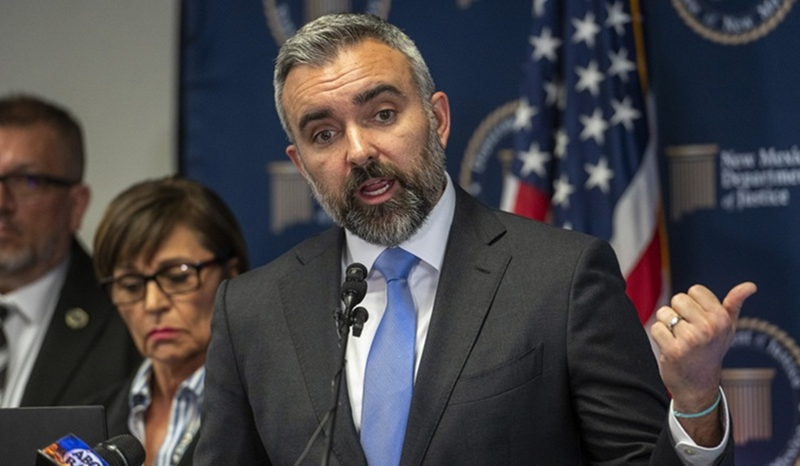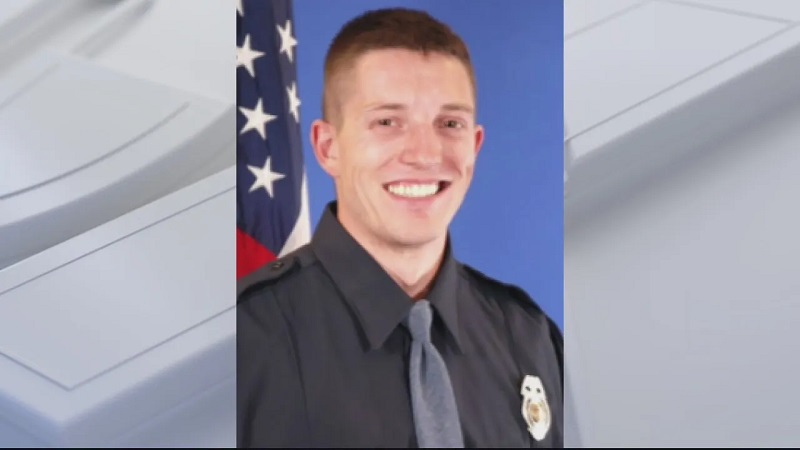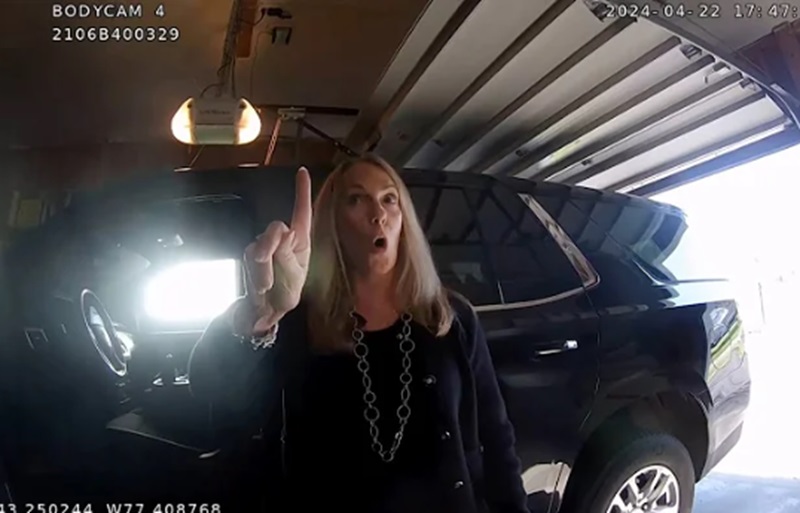
By Steve Pomper
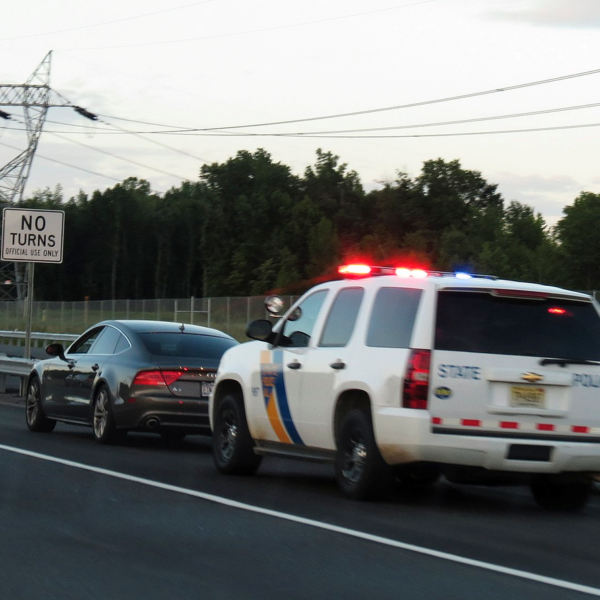
Police Traffic Stop (Photo: versageek, creative commons)
In keeping with the NPA’s mission to educate the public about what cops do and why they do it, here’s yet another example of what not to do on a traffic stop, generously provided by one of America’s principled public servants.
This avoidable traffic kerfuffle happened in Upstate New York, courtesy of Monroe County (Rochester) District Attorney Sandra Doorley. After a Webster police officer clocked her at 55 in a 35-mph zone, he tried to pull her over, but Doorley refused to stop.
Reportedly, since she now had some time on her hands, she decided to use it to call the Webster police chief and tell him she was “not a threat…” and “would talk to the officer at her house,” which was nearby.
How neighborly of her, right?
The officer arrives at Doorley’s house. Several other officers are already there (when drivers don’t stop it make cops justifiably nervous). She holds out her cellphone as he approaches (yeah, cops love it when you do that, too). It’s the chief.
The New York Post reported, upon learning she was the DA, the officer explained, “I’m doing my job. You say you’re the DA?”
“I am THE DA…” Doorley answers, as she gets her badge out of her car. She also calls the officer an “a-hole” (cops really love that one, too).
When the officer attempts to explain the stop to her, she says, “I know the law better than you…” (and the love just keeps on comin’).
When the officer asks her “Why didn’t you just stop?”
Doorley, out of all the things she could have said, chose, “I didn’t feel like stopping on Phillips Road at 5:30.”
The officer told the DA, “That’s not your choice. You know that.”
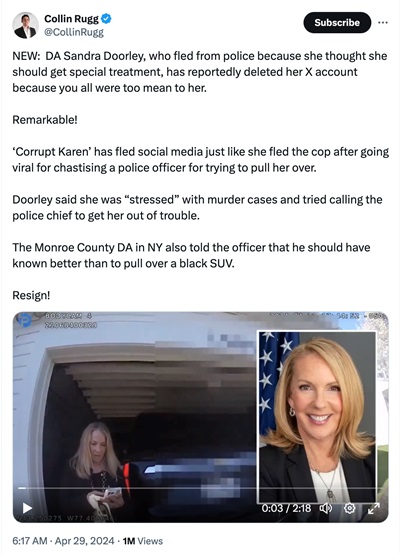
Of course, she knows that. She’s the friggin’ DA. Not even Her Grace gets to decide where the stop will take place. The trained police officer behind her will decide that based on multiple considerations including her, public, and officer safety.
Doorley said, “I thought I’d stop in my driveway. I thought it would be easier.” Sure. For her.
An officer only knows that the driver is either delaying or attempting to elude—for some unknown reason. Is the driver drunk, holding drugs, in possession of an illegal weapon, running from a crime— or has a body in the trunk? The officer is not psychic and must be prepared for the worst.
At one point, the officer notes she admitted she was doing 35 in a 55 and, after explaining she’d been dealing with a triple homicide from over the weekend, she said, “Do you really think I care if I was going 20 mph over the speed limit?” Well, I guess she would know an incriminating statement—when she utters one.
The truculent DA then demands the officer just “write me the ticket.” He tells her that this incident has surpassed the ticket stage because she’s turned it into “an arrestable offense.”
It’s likely the officer may (or may not, 20 mph over a 35-mph limit is significant) have given her a warning, perhaps offering some professional courtesy once he learned she was the DA. I wrote in detail about this type of traffic dust up in my book, Is There a Problem, Officer (The Lyons Press, 2007). A shameless plug, I know, but DA Doorley really could have used some of the advice in that book.
Finally, Doorley tells the officer she’d had a “really bad day… dealing with murders in the city” and a medical issue with her husband.
She might have offered that “bad day” excuse after stopping for the officer immediately when she saw his lights and heard his siren. He likely would have understood if she’d given him half a chance and treated him respectfully.
To be fair, she later issued a tepid public apology in a video statement.
According to WHAM 13 News, in a statement, Doorley said, “Once I realized that the intention of the car was to pull me over, I called the Webster Police Chief to inform him that I was not a threat and that I would speak to the Officer at my house down the street. The Webster Police Officer followed me to my house and issued me a speeding ticket for my speed of 55mph in a 35mph zone. I acknowledged that I was speeding and I accepted the ticket.
“Nobody, including your District Attorney, is above the rule of law, even traffic laws. Anybody who knows me understands without a doubt that I have dedicated my entire 33 year career to the safety of this community. My work to ensure the safety and respect of law enforcement is well proven time and time again. I stand by my work and stand by my commitment to the public safety of Monroe County.”
I’ll give her (a smidgeon of) the benefit of the doubt that any official offering an apology may earn these days when so many dodge taking any responsibility.
She’d also said, she “had no intention of using her position to receive a benefit.” While she may not have been trying to get out of a ticket, didn’t she still use her position to receive a benefit?” After all, calling the officer’s boss and being able to “stop” for the officer at a place of her choosing—her house—rather than where the offense occurred, is a benefit, right? Once at her house, officer could have immediately arrested her, and they could chatted at the station. Instead, he simply issued her the ticket she might have gotten had she just stopped and cooperated in the first place.
In the end, she was rewarded for her bad behavior or not fully punished for it. One commenter on FB wondered how many people who broke the law while having “bad days” she’d prosecuted over her career.
I suppose we can take comfort that the local and national public scrutiny has been uncomfortable for her, and that may deter her from future similar bad behavior. And, reportedly, the state is investigating the incident.
Better yet, believing in second chances, (after all, we all really do have bad days), Doorley also mentioned getting some additional training. I’d recommend the training I wrote about here at the NPA in which Arizona civil rights activist and police critic Reverend Jerrett Maupin took part. He learned a bit about what it’s like on the streets for cops
Let’s just say, I hope it would be as eye-opening for the DA as it was for the reverend.



